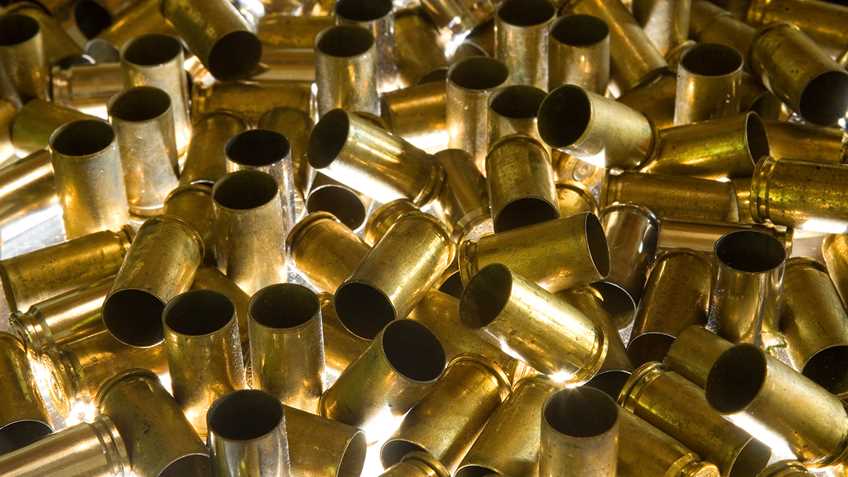Ammunition

Since the 1960s, gun control supporters have tried to get one or another variety of ammunition banned, severely restricted, prohibitively taxed or excessively regulated, to discourage the acquisition of guns and undermine their use.
For example, though the Gun Control Act of 1968 preamble stated that the law was not intended “to place any undue or unnecessary Federal restrictions or burdens on law-abiding citizens with respect to the acquisition, possession, or use of firearms,” the law required purchasers of handgun-caliber ammunition and rifle-caliber ammunition that could be used in a handgun to sign ledgers documenting their purchases. Because the requirement resulted in a massive amount of paperwork that served no law enforcement purpose, Congress in 1982 rescinded it as it applied to .22 rimfire ammunition and in 1986, as part of the Firearms Owners Protection Act, rescinded it as it applied to center-fire ammunition.
In the 1980s, gun control supporters claimed they wanted to restrict new handgun bullets made of metals harder than lead, which had been invented to enable law enforcement officers shoot through walls and doors, but they instead pushed legislation that would have banned traditional ammunition manufactured with bullets made of lead, commonly used for self-defense, hunting and sports. The Departments of Justice and the Treasury, and the NRA, opposed the legislation and the NRA helped write the “armor piercing ammunition” law that Congress instead adopted in 1986.
In the 1990s, gun control supporters again proposed banning traditional ammunition, a move rejected by the Treasury Department. Separately, they also sought a 1,000 percent tax on 9mm, .25, and .32 caliber ammunition, a 50 percent tax on all handgun ammunition, a ban on mail-order ammunition sales, a requirement for a background check to purchase ammunition, and a limit on the amount of ammunition a person could own without an “arsenal license.”
In February 2015, two years after failing to get Congress to ban the AR-15 and other general-purpose rifles, the Obama administration attempted to bypass Congress to ban the second most common ammunition used in the rifle. It withdrew the proposed ammunition ban after a majority in each house of Congress and over 80,000 Americans opposed the ban in letters and emails to the Bureau of Alcohol, Tobacco, Firearms and Explosives, and Congress threatened to reduce the chronically problematic agency’s budget.
Gun control supporters quickly took advantage of the situation to again call for a ban on traditional ammunition, like the bans that Congress rejected in 1986, and the Treasury Department rejected in 1997. Meanwhile, gun control supporters are trying to get traditional ammunition banned on environmental grounds as well.
Wednesday, January 3, 2018
Walmart stores in Sacramento County and across California will soon resume selling ammunition after having their ability to ...
Wednesday, December 27, 2017
California already has among the nation’s strictest gun control laws, and the Legislature continues to tighten them.
Tuesday, December 26, 2017
Beginning Jan. 1, Californians can no longer order ammunition online and have it delivered to their home.All ammunition ...
Tuesday, December 26, 2017
Last week, NRA and CRPA attorneys submitted a letter to California Attorney General Xavier Becerra and the California ...
Thursday, December 21, 2017
Ammunition sales across California are skyrocketing heading into the end of the year, but the deals have nothing ...
Tuesday, December 19, 2017
California’s Proposition 63, which restricts ammunition sales, passed with 62.7 percent of the vote in 2016. It has ...
Friday, December 1, 2017
On Friday, December 1, the California Department of Justice, Bureau of Firearms (“DOJ”) submitted its proposed regulations regarding ...
Wednesday, August 9, 2017
Citing new California gun control laws and internet sales that cut into the company’s profits, a Redding-based ammunition ...
Tuesday, July 18, 2017
On Friday, July 14th, the California Department of Justice, Bureau of Firearms (“DOJ”) claims to have released its ...
Friday, May 26, 2017
On Wednesday, May 24, 2017, Chairman of the House Committee on Natural Resources Rob Bishop (R-UT) introduced H.R. ...
 More Like This From Around The NRA
More Like This From Around The NRA

























